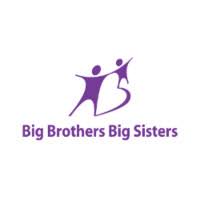Unlike a typical residential home, these settings are tailored to meet the unique needs of individuals recovering from addiction. By understanding the structure and rules that govern these homes, you’re better equipped to select a living situation that aligns with your recovery journey. In essence, sober living gives you the tools and support necessary for recovery, laying a foundation for a stable, sober future. Whether you’re transitioning from an inpatient program or seeking to strengthen your recovery process, sober living homes offer an invaluable stepping stone towards lasting sobriety. Addiction can be isolating, but in sober living homes, you are surrounded by individuals who understand the struggles and challenges that come with recovery.
Accountability
Assisting residents in increasing their mastery of recovery-oriented behaviors can promote their long-term recovery journey. Human recovery capital includes the individual’s unique knowledge, training, or education, and lived experience, sense of personal choice social integration, and connection to purpose. Principles of mutual respect, empathy, and understanding shape the group dynamics in these settings.
Additionally, structured programs like a relapse prevention program provide residents with tools to handle triggers and prevent relapse, contributing to higher success rates. Are there clear guidelines regarding substance use, curfews, guest policies, and house responsibilities? A well-defined set of rules helps create a structured and accountable environment conducive to sobriety.
Recovery Residences Foundational Principles
This provides a crucial lifeline during times of vulnerability–like when withdrawal symptoms hit and the urge to fall back on unhealthy patterns is at its strongest. Sober living programs emphasize developing essential life skills instrumental in maintaining long-term sobriety. Residents are given opportunities to learn and practice budgeting, time management, job seeking, and interpersonal communication skills.
Meaningful Relationships and Support
- Such diversified offerings underscore the importance of addressing physical, mental, and emotional health within the recovery framework.
- People from various walks of life come together to mutually support each other and share their unique recovery journeys.
- Residents live together, sharing responsibilities and fostering a sense of belonging.
- As a result, they are typically dorm-like in their living arrangements, resulting in less privacy for residents, but are frequently less expensive.
- This synergy enhances recovery outcomes, equipping individuals with the tools and support necessary to build fulfilling, substance-free lives.
According to police, Jeffrey Hustito checked into another sober living home on Dec. 26, this one in the suburb of A Guide To Sober House Rules: What You Need To Know Glendale. He later smoked fentanyl with another resident and laid down to sleep around 1 a.m. We are a community and association of sober people and organizations dedicated to spreading consciousness, good living, positivity, and mental health. After World War II, groups like Alcoholics Anonymous (AA) began to develop across the country.
These fellowship communities often operate without professional guidance and are typically cost-free. At their core, sober fellowships are gatherings of individuals unified in their commitment to sobriety, offering mutual support and camaraderie. However, the services and programs offered or integrated with recovery housing can be covered. Talk to your healthcare provider or places offering structured sober living near you to better understand costs and payment terms. Counseling is a process by which a mental health professional applies evidence-based procedures to help people in recovery build healthier and more effective coping methods. It can be a form of cognitive or behavioral treatment that can be integrated with other programs available in supportive housing.
Civil rights attorney Ben Crump said the state agencies named in the lawsuit have “devastated Native American communities” and the health care providers who serve them. The providers Crump is representing say they were unfairly targeted by AHCCCS, Arizona’s Medicaid system, when it suspended payments to these and other facilities in 2023. “They are vulnerable people who are being exploited. You have to put that in your intent. If you are just trying to protect the community from these sober living homes, you are violating federal law,” Johnson said. The federal Affordable Care Act, which passed in 2010, made mental health and substance abuse treatment one of the 10 essential benefits of any ACA-approved plan.
They encourage residents to take ownership of their actions and their journey towards sobriety. These communities create an environment that fosters individual responsibility, allowing residents to develop the coping skills and resilience necessary for long-term recovery. A community provides emotional support, accountability, and shared experiences, which are vital for recovery. While community support is essential, it’s also important to maintain a balance between communal living and personal space. Sober living homes often establish guidelines to ensure residents have time for self-reflection and personal growth alongside community activities.
Core Principles of Recovery
By thoroughly considering these factors, you can launch on the next chapter of your recovery journey with a sober living home that empowers you to achieve long-term success. It allows residents to open up about their struggles and rely on each other for support, fostering a sense of safety and belonging. Common activities include group therapy sessions, recreational outings, and peer support meetings. These activities foster camaraderie and provide opportunities for residents to connect and build friendships. Residents learn to manage responsibilities, communicate effectively, and resolve conflicts.
Aquila Recovery holds The Joint Commission’s Gold Seal of Approval® for Behavioral Health Care Accreditation
In a healing community for people with an addiction, mutual support serves as the bedrock of recovery. This dynamic fosters a nurturing atmosphere where individuals not only receive help but also extend their support to others, a significant factor in enhancing their recovery journey. The practice of mutual encouragement empowers residents, reinforcing the value of giving back and forming deep connections with peers. These relationships cultivate an environment of acceptance, where vulnerabilities can be shared without judgment, and triumphs are celebrated https://thecinnamonhollow.com/a-guide-to-sober-house-rules-what-you-need-to-know/ collectively. Addiction often takes away all that you once had and it’s important to have a community around you during the recovery process. The length of stay for a patient in a sober residence usually depends on the length of time they have been using substances.
- Experts anticipate these future trends in sober living will further personalize the recovery experience, allowing for tailored interventions that address individual needs more effectively.
- The deaths, almost all from drug and alcohol use, span from the spring of 2022 to the summer of 2024, according to a review of records from the Maricopa County Office of the Medical Examiner.
- Federal protections go away, however, if sober living homes allow drugs and alcohol in the house.
- This often includes finding a stable living environment that is free of drugs or alcohol.
Her stories have appeared in local and national news publications across the country. Silversmith earned a master’s degree in journalism from Northeastern University in Boston and is pursuing a Ph.D. at Arizona State University. She is an active member of the Indigenous Journalists Association and is committed to amplifying Indigenous voices and storytelling through journalism. She has made it a point in her career to advocate, pitch, and produce stories about Indigenous communities in every newsroom she’s worked in. “This grant program represents the commitment of the Attorney General’s Office to supporting communities that have incurred costs responding to the crisis,” said Richie Taylor, a spokesperson for Mayes.
These communities often emphasize the holistic aspects of sobriety, integrating practices that promote physical, mental, and spiritual wellness. The concept of supportive sober communities within these settings highlights the significant role mutual support plays in fostering resilience and long-term recovery. At our addiction treatment center in Massachusetts, we offer personalized treatment plans that are tailored to each individual’s unique challenges. Our goal is to provide the best possible care and support for our clients, regardless of how long their time at our drug & alcohol rehab may be.
“The state of Arizona owes our tribal nations an apology,” Mayes, the attorney general, said during the May 2023 press conference. In November 2024, her office announced a $6 million grant program for tribal nations affected by the sober living home fraud. Meanwhile, Native Health and Native American Connections, two well-established providers in Phoenix, pressed authorities to do more.
Participants benefit from a sense of accountability and motivation as shared experiences reinforce their commitment to a healthier lifestyle. These networks offer more than just support; they become one’s extended family, celebrating victories and overcoming struggles together, ultimately solidifying sobriety long-term. Peer-driven recovery programs focus on the collective strength of individuals navigating the road to sobriety together.





































